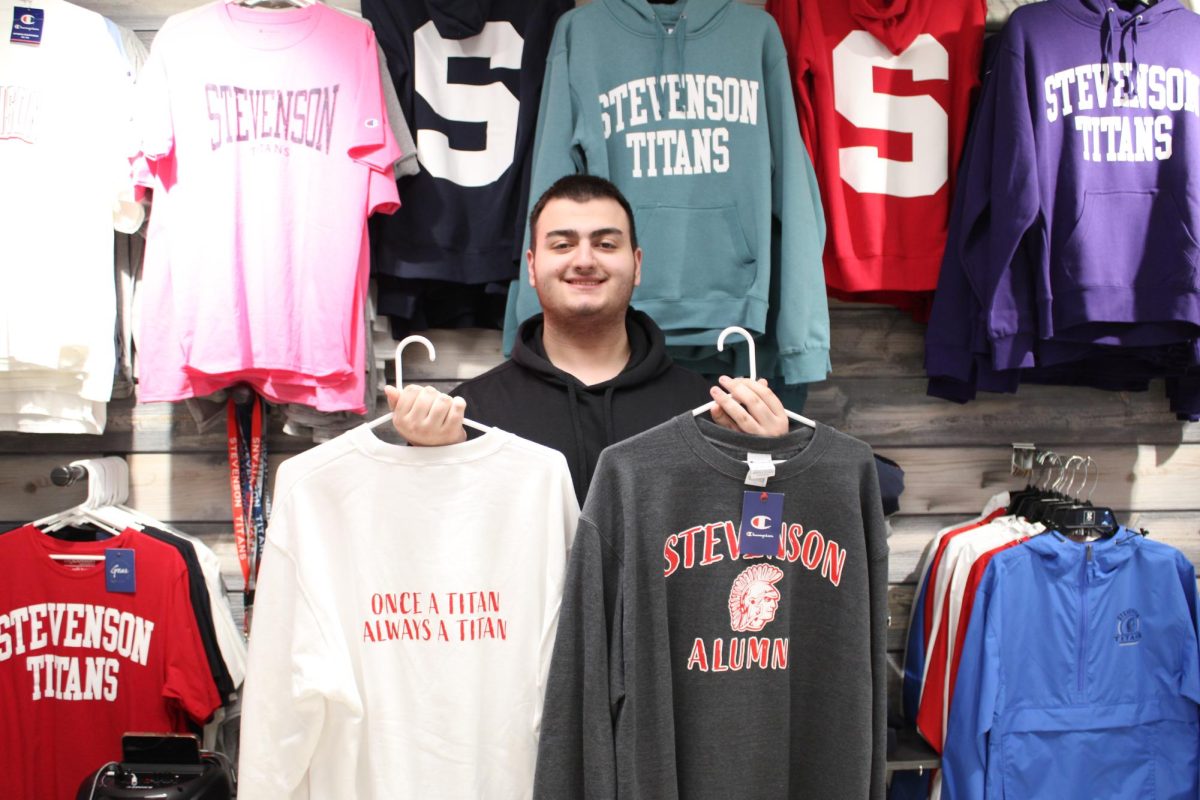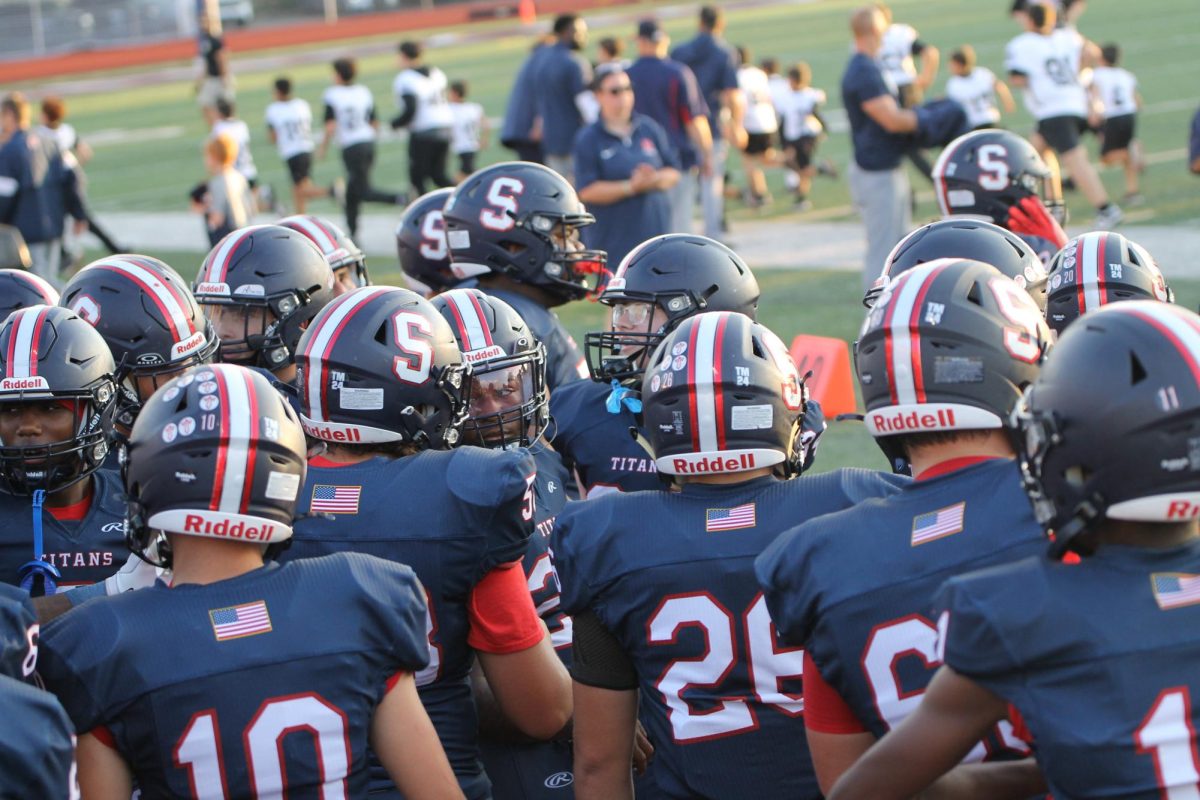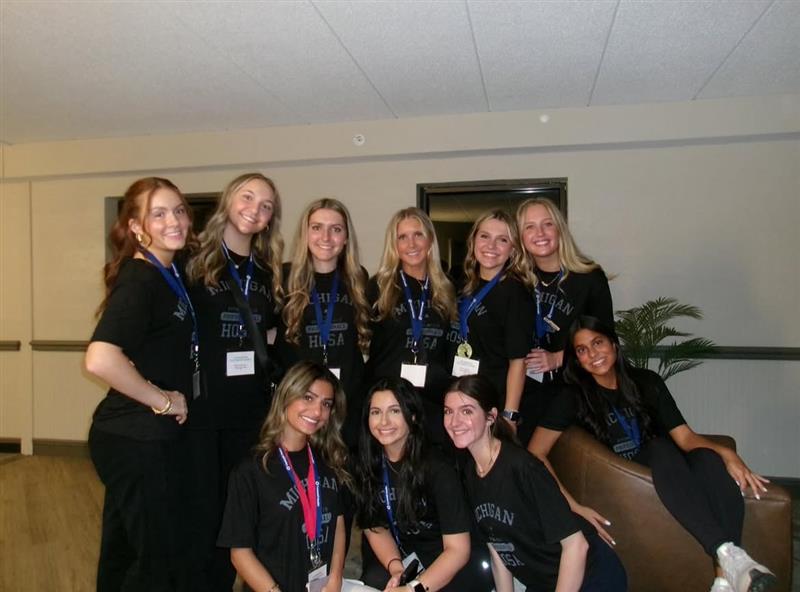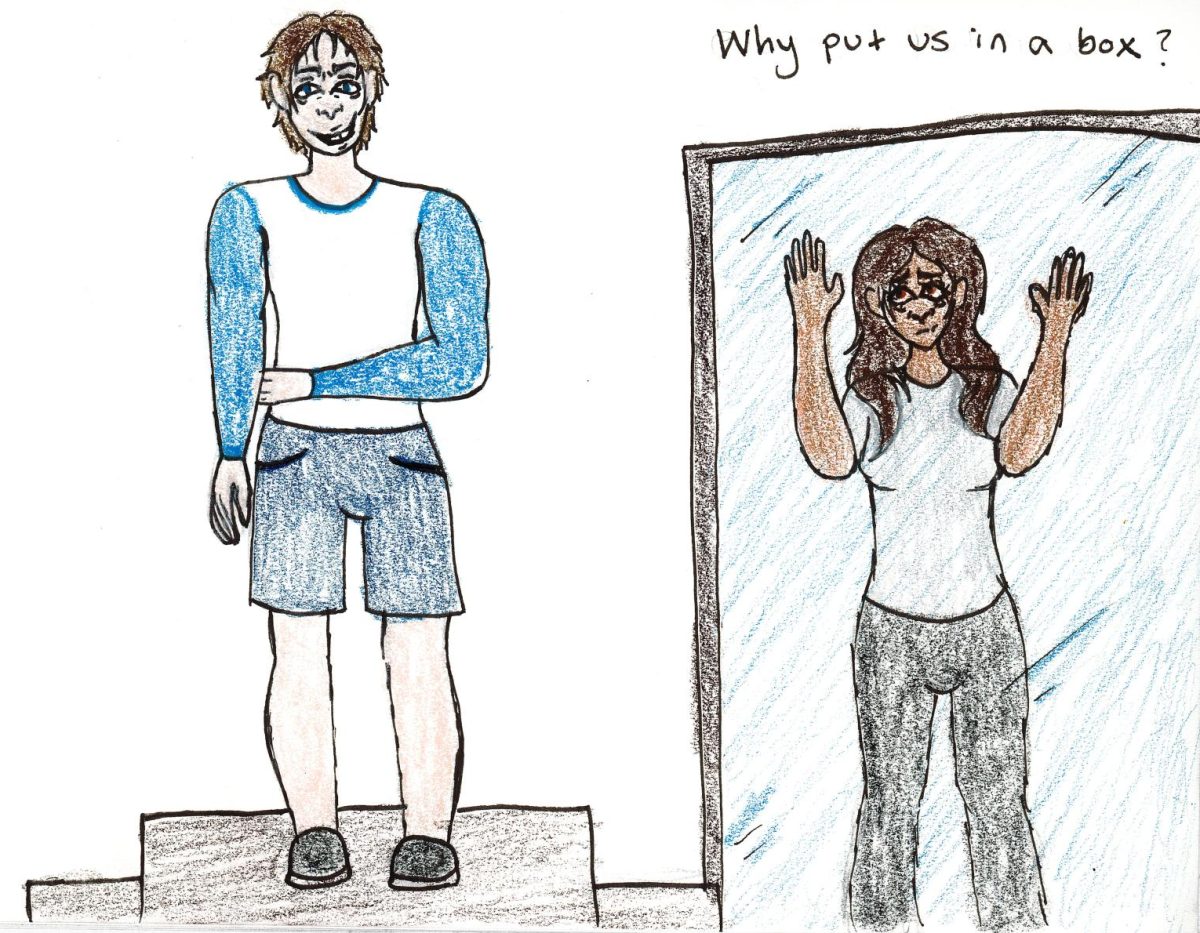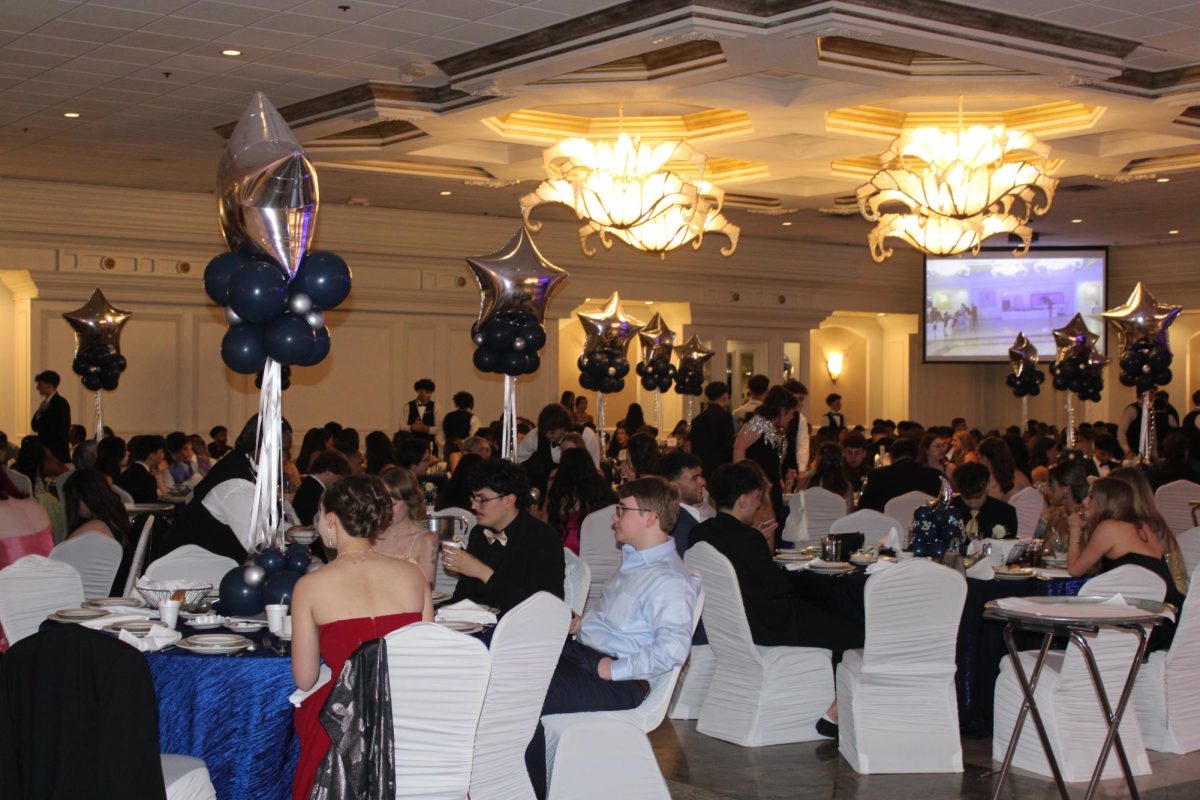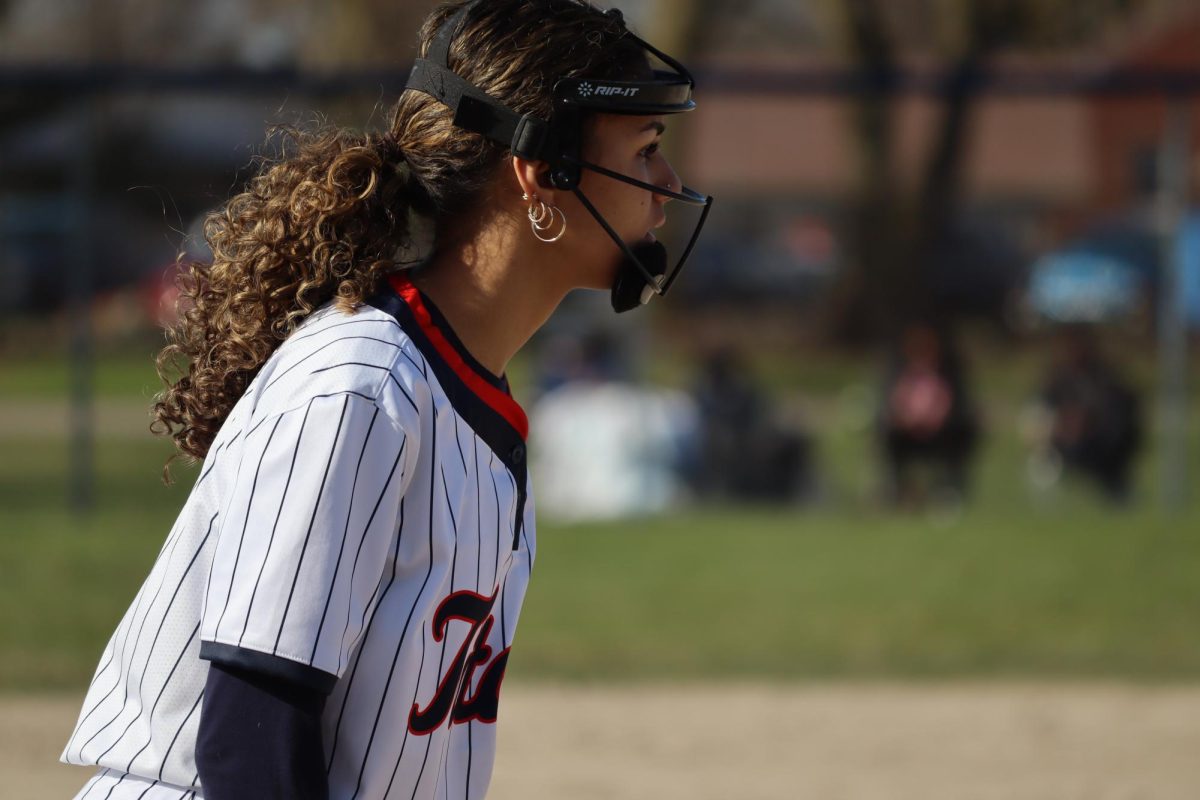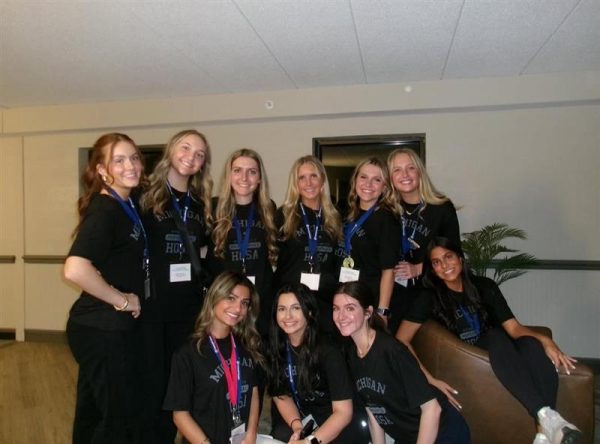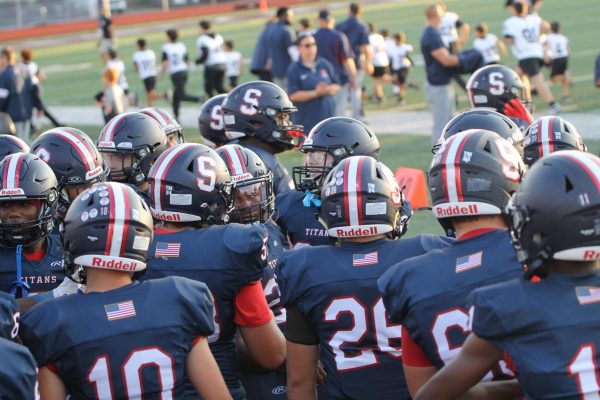Students Reflect on Gender Bias and its Impact on School Life
High schoolers share experiences of societal expectations, stereotypes, and the challenges of self-expression.
Being in school is rough for most, but it is even more so for students being discriminated against based on their gender. For those who feel the odds are stacked against them, whether that be through sports, careers or just how they express themselves, finding the motivation to do schoolwork is often strenuous.
Students seem to find it hard to be themselves when there are so many expectations put in place by society that get in the way and define who they are and what they can and cannot do. Boys and girls are pressured to feel and act a certain way because that is what is acceptable in today’s society. They are supposed to dress a certain way, be in a sport that fits their gender and meet requirements put up by society.
“I feel like today we have to dress to appeal to others and can only be ourselves if we are following the guidelines put up by society,” Jane Osborne ’22 said. “People say things like girls have to be beautiful and girly, guys do not want someone who acts manly, girls should not be on sport teams like football, and girls are weak and do not have the ability to do certain things.”
Despite sexist standards being shown in most aspects of life, authoritative figures do not seem to notice incidents involving sexism in high school, which can leave an imprint on impressionable teenagers. These incidents leave those ideas to stay with them throughout their adult life.
“I do not really see it, but I feel if you are looking for sexism, you can find it just about anywhere,” counselor Charles Nassar said. “Sexism exists in any organization because it is a power dynamic, and when you have men and women in a group, it happens. However, I do not feel that a power dynamic only happens when it is men and women in a space. I think if you have a group of the same gender and one person is seen as more superior, then you get the same situation.”
Nassar added how despite not everyone feeling that sexism is prevalent at Stevenson, sexism still can affect how teenagers see themselves and how they do their schoolwork.
“Some students are put down in the math and science fields and do not go after their dreams because people have told them that another gender is more capable of being in that field,” math teacher Jennifer Lindquist said. “Although, I do feel sexism is seen more in the workplace. When people are taught discrimination from a young age, it can affect how they see themselves and how hard they try in school.”
A common activity teenagers participate in are sports, which often has sexism in it for both males and females. Those critics will say that a sport is too girly and boys should not join, or people comment on girls playing sports that are commonly played by guys.
“People are prone to believe that volleyball is not a hard sport,” Maryann Akilomhen ’22 said. “This is because it is mostly played by girls and they think it does not require much effort even though we spend hours practicing. Many people would rather watch boys playing sports because they are supposedly stronger and some only go watch girls play to look at their body.”
Some students like Luke Llansang ’22 said he finds that teachers often stereotype people in the classroom by gender. Giving certain jobs to boys because they are “stronger” or by saying that girls are typically more well behaved than boys.
“Many of my teachers tell me that I have good handwriting for a boy,” Llansang said “They also single boys out when yelling at the students usually saying it was only the boys misbehaving even if it was not. I feel like teachers do not have high expectations of boys in the classroom, which makes doing the work hard because teachers do not seem to think I will do good at it anyways so what is the point.”
Boys and girls should not have to live in a society that does not allow them to express themselves. Skerdi Mamani ’22 said individuals of all gender should be allowed to participate in what they want to without backlash.
“In American society, there is a stigma that guys cannot be expressive as it is seen as feminine,” Mamani said. “This discrimination does not apply to a lot of other countries, so it should not apply to us. I feel we will never be truly equal because our expectations of each other keep us from connecting. I hope we can move forward and get as close as possible to being accepting of everyone despite differences.”
Your donation will support the student journalists of Stevenson High School - MI. Your contribution will allow us to purchase equipment and cover our annual website hosting costs.


